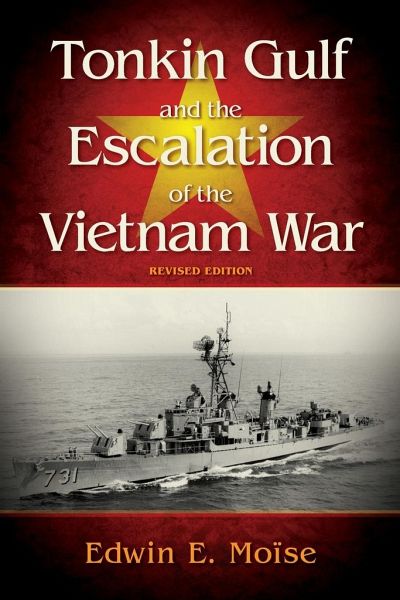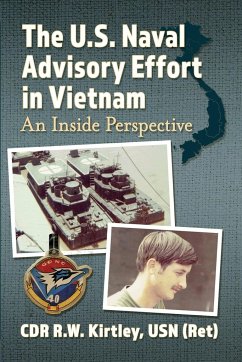
Tonkin Gulf and the Escalation of the Vietnam War
Revised Edition
Versandkostenfrei!
Versandfertig in 1-2 Wochen
27,99 €
inkl. MwSt.

PAYBACK Punkte
14 °P sammeln!
On July 31, 1964, the U.S. Navy destroyer USS Maddox (DD 731) began a reconnaissance cruise off the coast of North Vietnam. On August 2, three North Vietnamese torpedo boats attacked the ship. On the night of August 4, the Maddox and another destroyer, the USS Turner Joy (DD 951), expecting to be attacked, saw what they interpreted as hostile torpedo boats on their radars and reported themselves under attack. The following day, the United States bombed North Vietnam in retaliation. Congress promptly passed, almost unanimously and with little debate, a resolution granting President Lyndon Johns...
On July 31, 1964, the U.S. Navy destroyer USS Maddox (DD 731) began a reconnaissance cruise off the coast of North Vietnam. On August 2, three North Vietnamese torpedo boats attacked the ship. On the night of August 4, the Maddox and another destroyer, the USS Turner Joy (DD 951), expecting to be attacked, saw what they interpreted as hostile torpedo boats on their radars and reported themselves under attack. The following day, the United States bombed North Vietnam in retaliation. Congress promptly passed, almost unanimously and with little debate, a resolution granting President Lyndon Johnson authority to take "all necessary measures" to deal with aggression in Vietnam. That incident of August 4, 1964, is at the heart of this book. Author Edwin Moise interviewed numerous Americans who were present. Most believed in the moment that an attack was occurring. By the time they were interviewed, there were more doubters than believers, but those who still believed were more confident in their opinions. Factoring in degree of assurance, one could say that the witnesses were split down the middle on this fundamental question. A careful and rigorous examination of the other forms of evidence, including intercepted North Vietnamese naval communications, interrogations of North Vietnamese torpedo boat personnel captured later in the war, and the destroyers’ detailed records of the location and duration of radar contacts, has led the author to conclude that no attack occurred that night.














